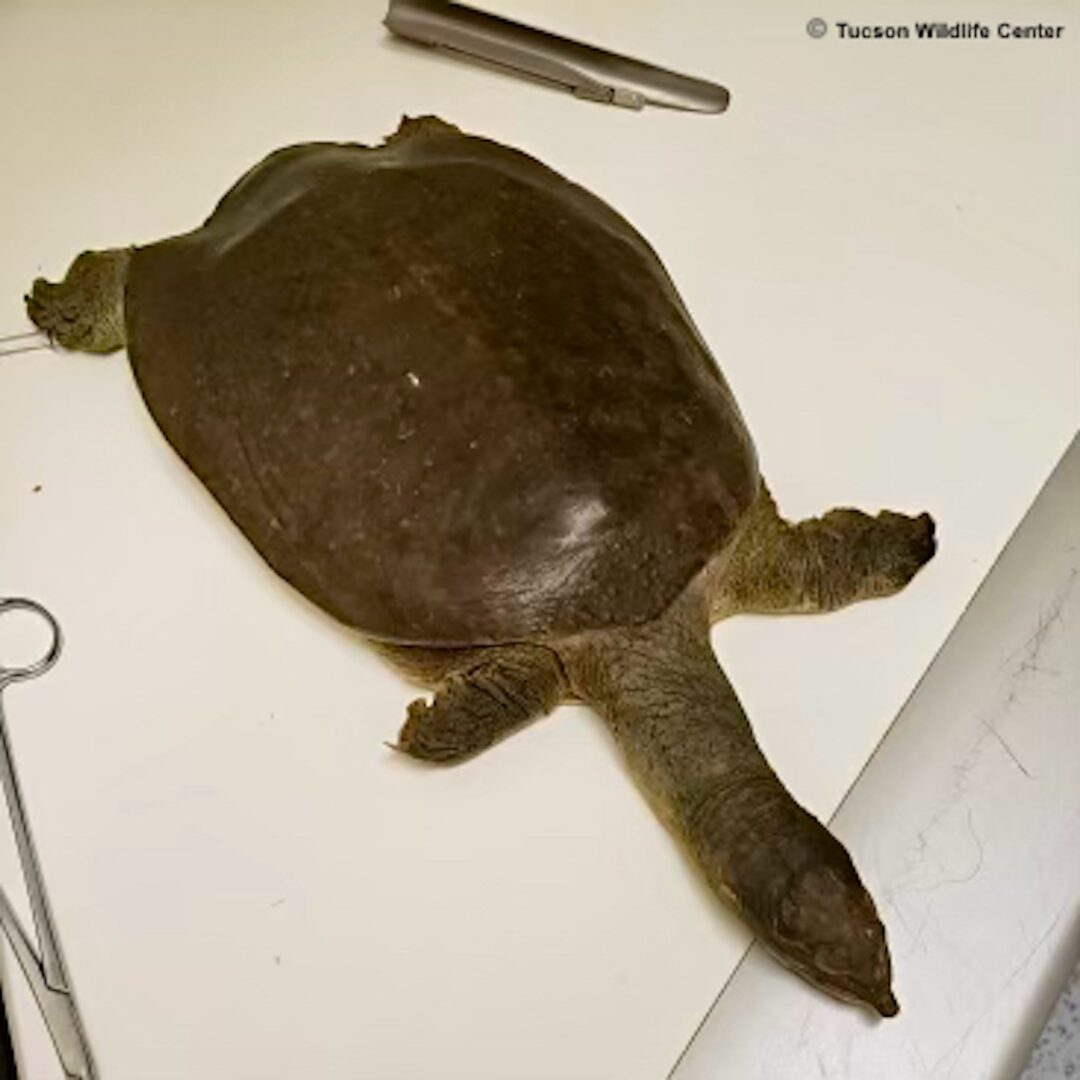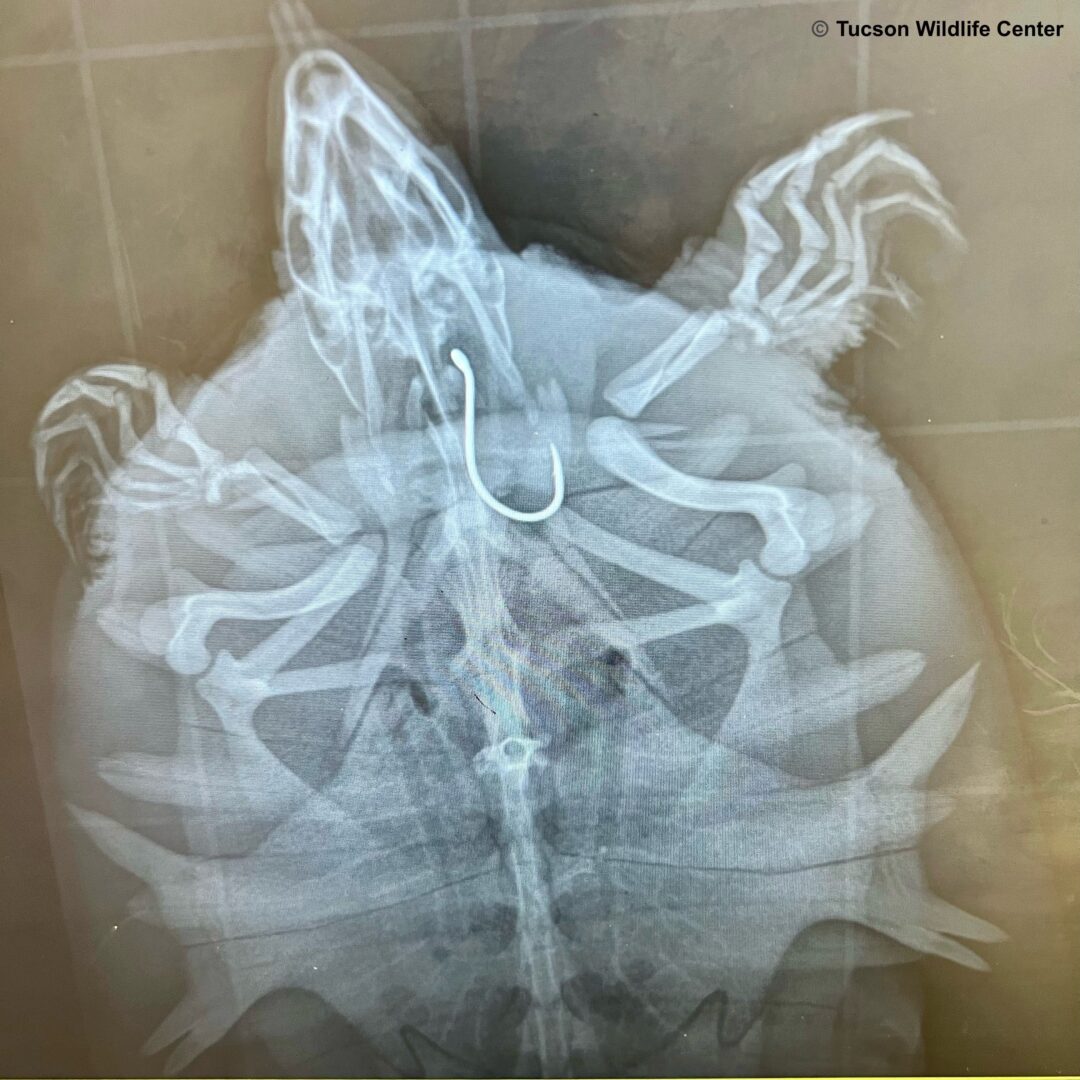
Spiny Softshell turtle
This spiny softshell turtle was brought to Tucson Wildlife Center after residents noticed fishing line hanging from her mouth. Their quick action most likely saved her life. Once at TWC, a radiograph confirmed a fishing hook lodged in the turtle’s cervical esophagus. A delicate surgical procedure was performed by our staff veterinarian to safely remove the hook, and we are pleased to report that this softshell turtle has been released back into the wild.
Every year TWC treats many wild animals that suffer unnecessarily from improperly disposed fishing gear. Animals can become entangled in discarded fishing lines and nets, leading to severe injuries, impaired mobility and drowning. Wildlife can also mistakenly ingest fishing hooks and other fishing gear causing internal injuries, blockages, infections and even death. We urge you to let this turtle’s experience serve as a reminder to dispose of fishing gear responsibly. Your actions can make a difference in protecting our local wildlife!
FUN FACT: Unlike most turtles with hard, bony shells, spiny softshell turtles have a flexible, leathery upper shell and thinner skin around their neck and throat. This adaptation enables them to absorb oxygen directly from the water through their skin and into their bloodstream, allowing them to stay submerged for extended periods of time. If you would like to help patients like this spiny softshell turtle, click this link to donate,
Another way you can contribute is to visit our “wish list” on Amazon by clicking on the Amazon Wish List button below. We appreciate it, as will all the wild animals in our care!


